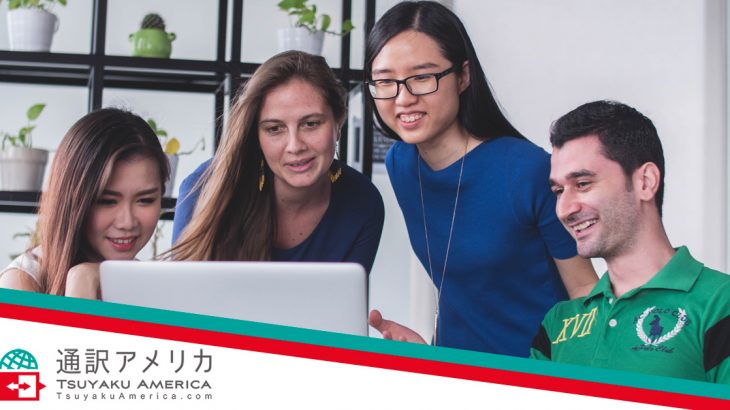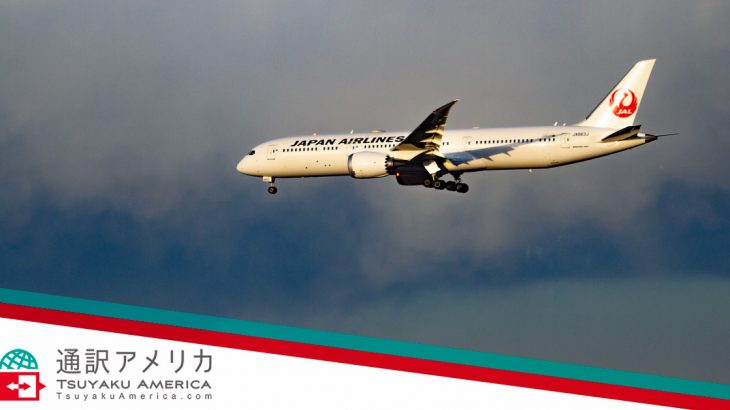If you’re like most business owners, then you probably haven’t worked with an interpreter before. This is completely understandable, as many domestic businesses don’t have to navigate multiple languages in the course of their everyday dealings. However, if your business is entering the Japanese market, then it’s important to ensure that you have the resources you need to be prepared. As we noted in parts one, two, three, and four of a previous series, hiring a Japanese interpreter is an excellent way to show Japanese business partners that you care about their culture and are invested in your shared professional relationship. In today’s post, we’ll provide you with several tips that can help you speak through an interpreter more effectively.
When you’ve finished reading today’s entry, reach out to Tsuyaku America to learn more about our Japanese interpretation services. We can help you find an interpreter who can come to your business to interpret at the meeting with your Japanese guests, or accompany you on your trip to Japan, or even find you a local interpreter in Japan who can help you during your visit. Read on for tips that will help you work more effectively with your interpreter!
Tips for Working With a Japanese Interpreter
Keep Your Material Brief 
When working with an interpreter in a bi-directional discussion or negotiation with your Japanese guests, you will most likely be using consecutive interpretation (See this article for more information about consecutive and simultaneous interpretations). In this mode of interpretation, it’s important to remember that your conversation will take much longer than normal. Even the most experienced Japanese interpreters will need time to relay information between you and your interlocutors, and parsing out the linguistic differences can take a fair amount of time. Hopefully your meeting was scheduled with this point in mind, but if it wasn’t, then try to keep your remarks brief without being rude or short. No matter how much or how little time you have, never rush the interpreter or the other party.
On a related note, make sure that each and every one of your thoughts is complete. Many people stop themselves in the middle of a sentence to provide their interpreter with time to think about and translate the dialog, but this actually makes the interpreter’s job very difficult. Grammatically, English sentences and Japanese sentences have almost the completely opposite structure. For example, “We wish to buy product A” in a Japanese sentence would be structured as, “We, product A, wish to buy.” This means that until the English sentence is finished to indicate that the speaker wishes to buy product A, the interpreter cannot start the Japanese sentence. Stopping halfway through the sentence at “We wish to buy” and waiting for the interpreter to translate the first half only would make for a very awkward Japanese translation. So, its best to quickly finish a full sentence, then pause for the interpreter to interpret the full sentence. Of course, most sentences are much longer and more complex than the above example, which makes it even more important to speak in concise, clear, and complete sentences. Speaking in full sentences rather than stopping and pausing in the middle of a sentence should also make it easier for the English audience to follow exactly what is being said, and even help the speaker avoid losing their train of thought in the middle of a sentence.
Prep Your Interpreter
It is always a good idea to give your interpreter some advance knowledge on what is going to be discussed at a meeting. In particular, if you anticipate some difficult negotiations or disagreements, giving the interpreter a heads-up on the nature of the negotiation, your objectives and goals, potential objections or disagreements you anticipate, and how you plan to address such disagreements are all very important elements of prepping the interpreter. This will make it much easier for the interpreter to follow and anticipate the direction of the conversation, which will certainly result in higher quality translation, but may also allow the interpreter to add some nuances to the translation to help with your negotiation.
Hire Your Own Interpreter in a Negotiation 
One important factor to keep in mind is that in order to be able to prep your own interpreter so they can help you in your negotiation, you must hire your own interpreter. You cannot rely on the interpreter that the other party brings to the meeting if you are in a negotiation with the other party. Well, you can, but it’s usually a bad idea. The interpreter will always side with the party that is paying them. For example, in litigation that requires interpretation, the plaintiffs and the defendants will almost always bring their own interpreters. They will never rely on the opposing party’s interpreter to interpret for their side, or if they do, they will have their own interpreter check every word that the opposing party’s interpreter utters.
Keep Your Illustrations to a Minimum
Building off of the previous point, using idioms, metaphors, and illustrative language is one of the easiest ways to make your interpreter’s life harder and create confusion between you and your interlocutor. Many of the phrases and colloquial phrases we use in our daily lives are not easy to translate into other languages, and your interpreter may have to spend extra time thinking of a way to convey the information in a meaningful way. Humor, or jokes, are also extremely difficult to convey in a different language and culture. As a general rule, keep your language as simple as possible. If you do need to use an idiom, play on words, regional story, or another way of speaking which does not translate directly from English to Japanese, then be sure to let your interpreter know ahead of time so that they can prepare in advance.
Hire a Japanese Interpreter Today!
We hope that today’s entry will help you work more effectively with your interpreter. Be sure to check our blog page frequently, as we’ll be updating this page with even more helpful resources in the coming weeks and months. We’re happy to provide you with any additional information on the topics we cover, so do not hesitate to get in touch with us if you would like to learn more about a certain article.
Tsuyaku America is here to help you will all of your business interpretation needs. From small meetings to large overseas conferences, we can help you find the right Japanese interpreter for the job. Please get in touch with us through this form to provide us with the information we need.
We look forward to speaking with you!
















